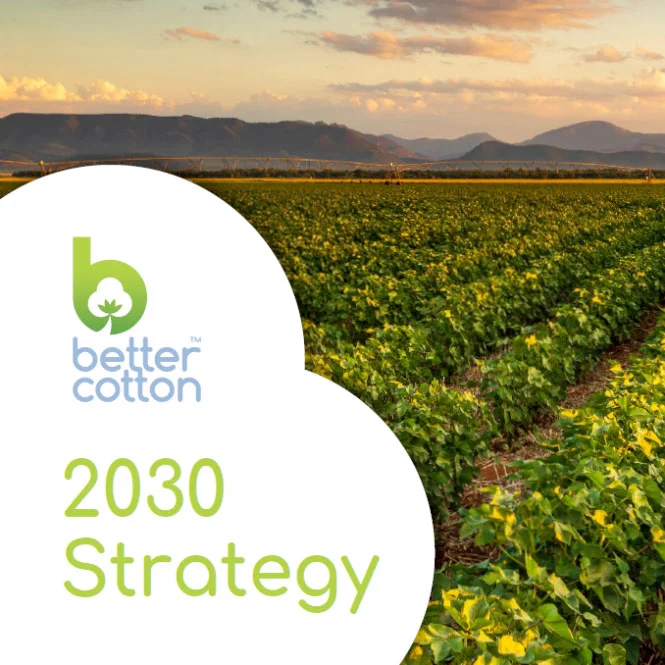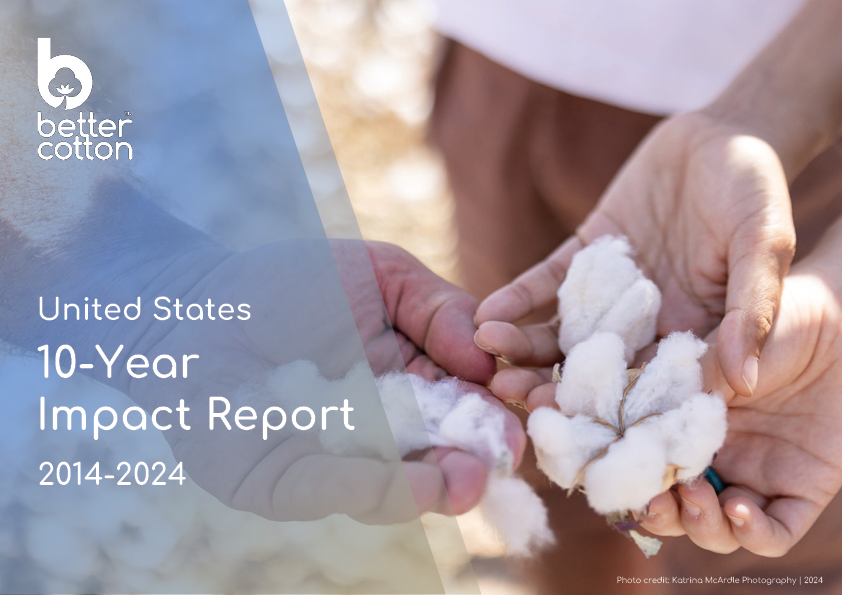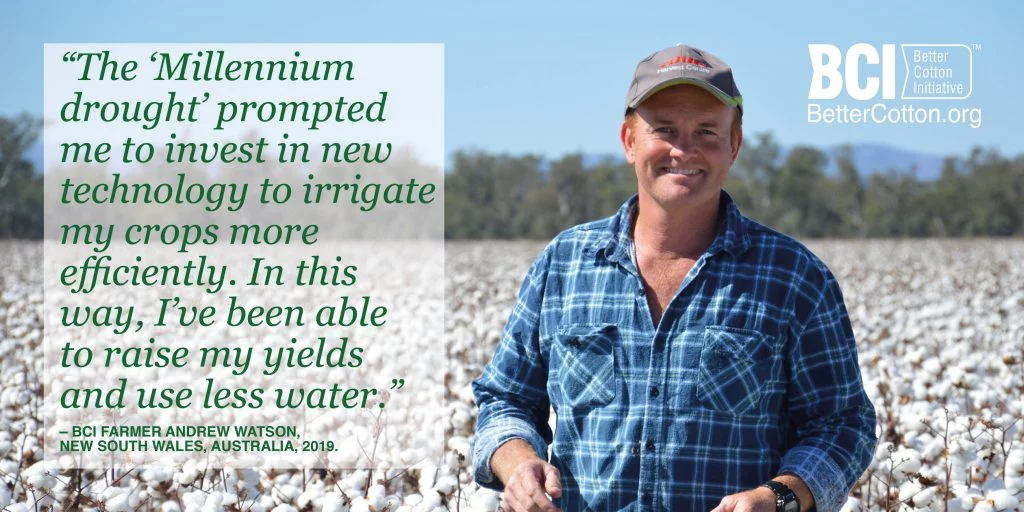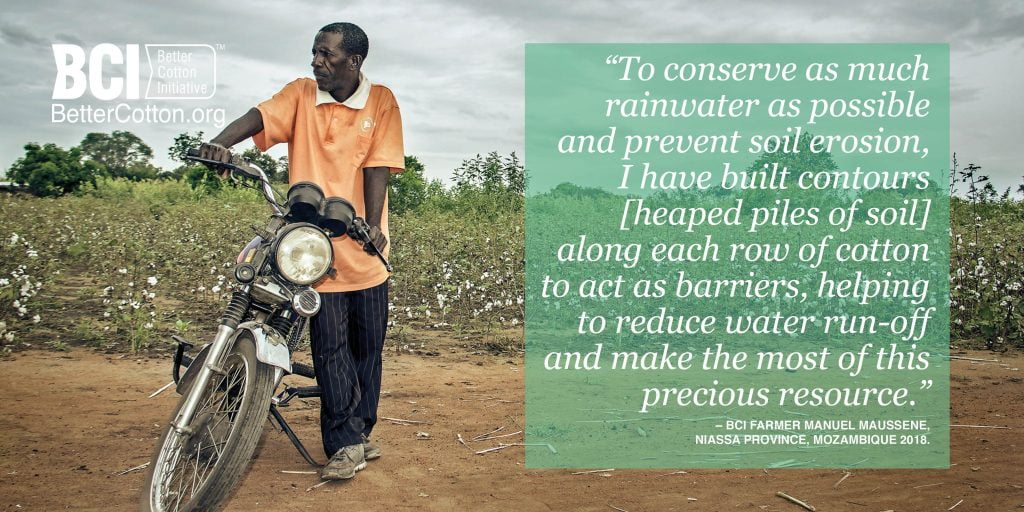- Who we are
- What we do
In just over 10 years we have become the world’s largest cotton sustainability programme. Our mission: to help cotton communities survive and thrive, while protecting and restoring the environment.
- Where we grow
Better Cotton is grown in 22 countries around the world and accounts for 22% of global cotton production. In the 2022-23 cotton season, 2.13 million licensed Better Cotton Farmers grew 5.47 million tonnes of Better Cotton.
- Our impact
- Membership
Today Better Cotton has more than 2,700 members, reflecting the breadth and diversity of the industry. Members of a global community that understands the mutual benefits of sustainable cotton farming. The moment you join, you become part of this too.
- Associate Membership
- Civil Society Membership
- Producer Organisation Membership
- Retailer and Brand Membership
- Supplier and Manufacturer Membership
- Find Members
- Member Monitoring
- Better Cotton Platform
- myBetterCotton
- Resources – Better Cotton Conference 2022
- Complaints
- Whistleblowing
- Safeguarding
- Get Involved in the Better Cotton Programme
- Thank you for contacting us
- Better Cotton’s Data Privacy Policy
- Log in
- Members’ Area
- Request for Proposals
- Better Cotton Cookie Policy
- Web Reference
- Measuring Cotton Consumption
- How to Implement the Chain of Custody Standard
- Resources – Better Cotton Conference 2023
- Certification Bodies Old
- Latest
- Sourcing
- Latest
The founding premise of Better Cotton is that a healthy sustainable future for cotton and the people that farm it is in the interests of everyone connected with it.
Let us help you find what you’re looking for
Results for {phrase} ({results_count} of {results_count_total})Displaying {results_count} results of {results_count_total}
To mark World Water Day 2019, we quizzed Gregory Jean, BCI’s Standards and Learning Manager, about how BCI is working with our on-the-ground partners and cotton farmers around the world to address critical water challenges in cotton production.
- What specific water challenges do cotton farmers face?
Freshwater is a shared and limited resource, making water scarcity and pollution major global issues. In cotton production, using water to irrigate crops can impact water availability and quantity, while using pesticides and fertilisers can affect water quality, as can farm run-off (water that leaches from fields due to irrigation or rain, that may contain fertilisers, pesticides or animal waste). Climate change is expected to intensify existing pressures on water supply, particularly in regions where water scarcity is already a concern. For this reason, cotton farmers need to adopt suitable adaptation measures.
- Tell us about BCI’s approach to water?
There are seven Better Cotton Principles and Criteriawhich lay out the global definition of Better Cotton. By upholding these principles, BCI Farmers produce cotton in a way that is measurably better for the environment and farming communities. One of the principles focuses solely on water. In 2017, we broadened the scope of our water principle and aligned it with the concept of “water stewardship,’ a holistic water management approach that encourages collective action towards sustainable use of water at a local level. Our efforts also align with SDG 6: Ensure availability and sustainable management of water and sanitation for all.
- What does that mean for farmers?
We deliver water stewardship training to our on-the-ground partners, who in turn deliver training to BCI Farmers. Our training helps BCI Farmers to really understand water resource management and related challenges in their local areas. They also learn how to collaborate with others to use water responsibly and conserve water quality. This year, together with Alliance for Water Stewardship and Helvetas, we developed and launched a series of water stewardship pilot projects that focus on safeguarding water resources and preserving water quality. So far, we’ve delivered training to our on-the-ground partners in China, India, Mozambique, Pakistan and Tajikistan.
- What changes are you seeing?
As a result of the updated Water Stewardship Principle, many BCI Farmers are now mapping water resources, managing soil moisture, managing water quality and applying efficient irrigation practices (where applicable). Farmers in the five pilot countries (highlighted above) have also been engaging and collaborating with local institutional, scientific and NGO communities in order to drive collective action on water stewardship. Each year, we share BCI Farmer results which include environmental and social indicators. Looking at our 2016-17 season results we see that BCI Farmers in the five countries we analysed (China, India, Pakistan, Tajikistan and Turkey) used less water than comparison farmers. For example, BCI Farmers in Pakistan used 20% less water than farmers who didn’t participate in BCI training sessions.
Stories from the Field




